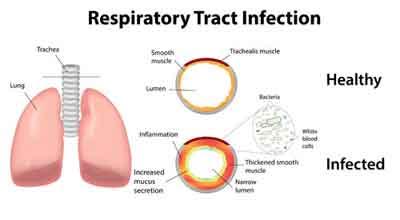- Home
- Editorial
- News
- Practice Guidelines
- Anesthesiology Guidelines
- Cancer Guidelines
- Cardiac Sciences Guidelines
- Critical Care Guidelines
- Dentistry Guidelines
- Dermatology Guidelines
- Diabetes and Endo Guidelines
- Diagnostics Guidelines
- ENT Guidelines
- Featured Practice Guidelines
- Gastroenterology Guidelines
- Geriatrics Guidelines
- Medicine Guidelines
- Nephrology Guidelines
- Neurosciences Guidelines
- Obs and Gynae Guidelines
- Ophthalmology Guidelines
- Orthopaedics Guidelines
- Paediatrics Guidelines
- Psychiatry Guidelines
- Pulmonology Guidelines
- Radiology Guidelines
- Surgery Guidelines
- Urology Guidelines
Reduced kidney function ups risk of respiratory tract infections

Beware! A study has recently warned that individuals with poor kidney function had an increased risk of developing infections acquired in the community - lower respiratory tract infections, urinary tract infections and sepsis.
The findings indicate that the people with kidney disease would benefit from an increased focus on preventing infections.
Infections contracted outside of a healthcare setting are common and they contribute to considerable illness and increased healthcare costs.
Lead author Juan Jesús Carrero from Karolinska Institutet in Sweden wondered that if kidney function might affect one's susceptibility to such community-acquired infections.
Researchers analysed 12-month information from 1,139,470 participants in the Stockholm CREAtinine Measurements (SCREAM) project, which collected measures of kidney function from individuals in Stockholm, Sweden.
The team found that the incidence rate of all infections increased with lower kidney function, from 74 per 1000 person-years of individuals with normal kidney function to 419 per 1000 person-years with stage four or higher chronic kidney disease (CKD).
Also, the relative proportion of lower respiratory tract infections, urinary tract infections and sepsisbecame increasingly higher as kidney function decreased.
"Given the fact that CKD remains under-diagnosed and unrecognised in most societies, our findings may help patients and clinicians become more aware of CKD and its complications," Dr. Carrero stated.
The study suggested that this in turn may be useful to identify patients at increased risk of infection and inform discussions about prevention strategies, such as vaccination, and health service planning.
The results appear in Clinical Journal of the American Society of Nephrology.

Disclaimer: This site is primarily intended for healthcare professionals. Any content/information on this website does not replace the advice of medical and/or health professionals and should not be construed as medical/diagnostic advice/endorsement or prescription. Use of this site is subject to our terms of use, privacy policy, advertisement policy. © 2020 Minerva Medical Treatment Pvt Ltd